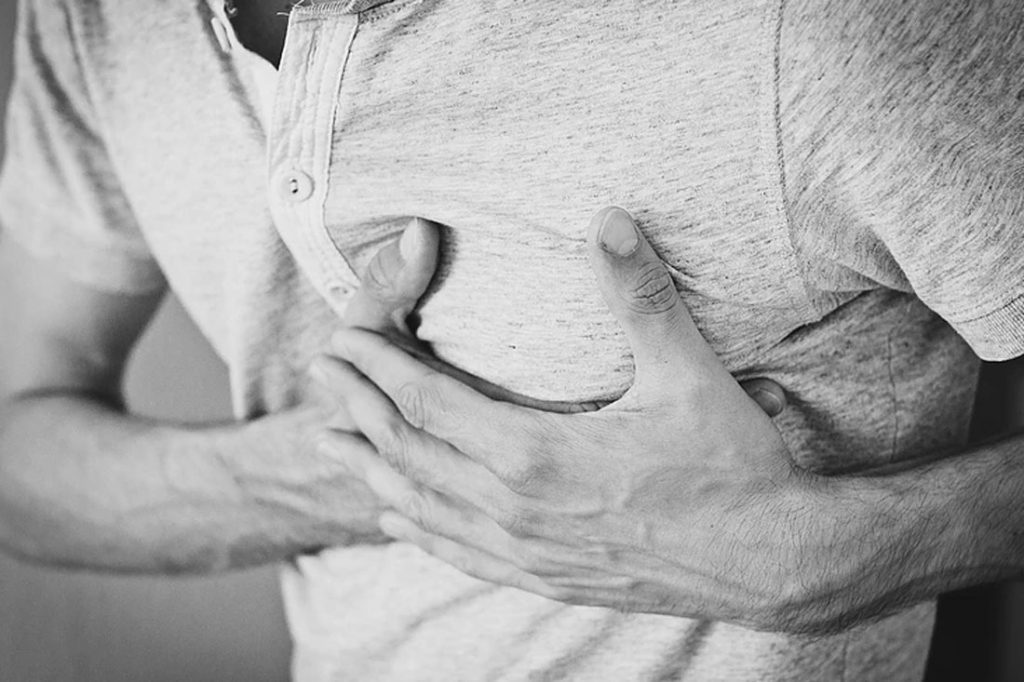
Although COVID-19 mostly causes symptoms related to the lungs (like cough and shortness of breath), doctors have described several cases of coronavirus causing symptoms that mimic a heart attack. Specifically, coronavirus can cause myocarditis, an inflammation of the heart muscle that results in severe chest pain, sweating, shortness of breath, and other symptoms. When patients with myocarditis show up in the hospital, they have other signs of heart attack too, like changes in the electrocardiogram and blood markers that show damage in the heart muscle. However, when doctors look for blockages in the arteries that you would expect to see in a heart attack, there are no blockages, meaning this is not due to a heart attack at all.
Why does this happen? Well, the inflammation in the heart muscle can be due to the virus itself, or can be due to the body’s immune response to the virus. We are not sure yet what is the specific cause in the case of coronavirus. It is also important to note that myocarditis has been demonstrated with other viruses, the key question is whether this phenomenon occurs with any more frequency or severity with coronavirus. Regardless of the cause, if you develop severe chest pain and shortness of breath, you should seek immediate medical evaluation.
Chat with a doctor and get online treatment for just $73
Get startedK Health articles are all written and reviewed by MDs, PhDs, NPs, or PharmDs and are for informational purposes only. This information does not constitute and should not be relied on for professional medical advice. Always talk to your doctor about the risks and benefits of any treatment.

 Medically reviewed
Medically reviewed